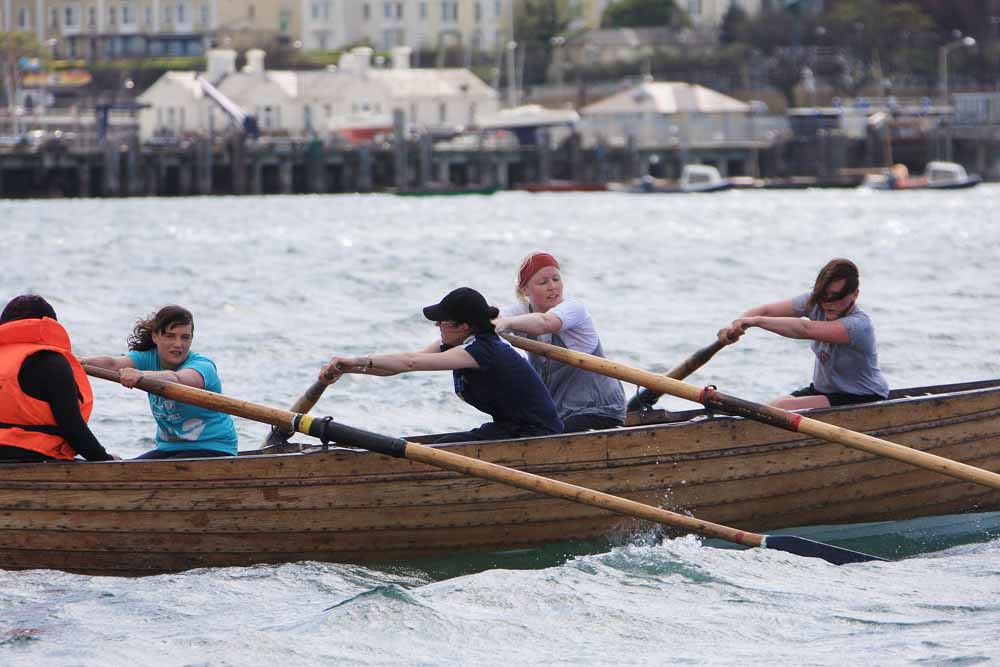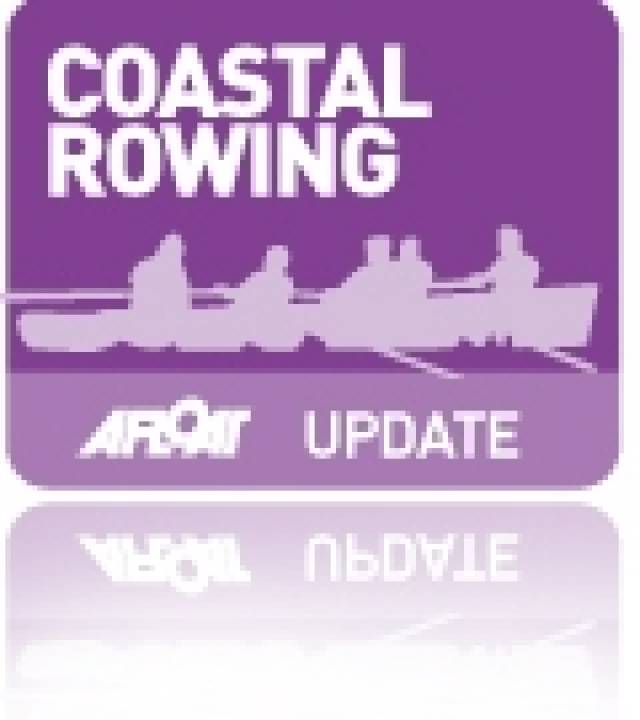#COASTAL ROWING – Over the coming May bank holiday weekend (4th-6th May), 12 men and women of St Michael's Rowing Club, Dun Laoghaire, will take part in a biennial rowing race across the Irish Sea known as 'the Celtic Challenge'. The race sets off from Arklow, Co. Wicklow with the finishing line in Aberystwyth, Wales. At 150km, this relay race is billed as the longest 'true' rowing race in the world and draws together 27 teams from Wales, Ireland and beyond. The team is taking on this challenge to raise funds for a clubhouse in Dun Laoghaire, for the first time in the club's 90 year history.
Not many races start and finish in different countries, a source of pride to the Welsh and Irish oarsmen and women involved. So too is the sport of coastal rowing itself, which differs from the Olympic or 'Oxford-v-Cambridge' code of rowing in a number of key ways. Seats are fixed, not sliding, and boats are of a more substantial construction to tackle the swell on the open seas, which can reach several metres.

A St. Michael's boat and crew in training for the Celtic Challenge Cox: Tania Hashmi, Nicola Fitzgerald, Sam Nagle, Kathryn O'Leary, Julia Boyle
St. Michael's take things a step further by using quarter-ton wooden clinker-built east coast skiffs rather than the modern fibreglass models, used by all other competitors in 2010. Their solid wood oars are three times heavier than carbon fibre equivalents, requiring strength and a particular technique. In common with other clubs of Dublin and Wicklow, these boats originate from the 'Hobblers' of old; crews of local men who would engage in unlicensed pilotage of merchant shipping.
Their neighbour in Dun Laoghaire, the now seasonal HSS Stena Explorer consumes 20,000 litres of fuel per hour in crossing the Irish Sea. The St. Michael's squad will be powered by pasta, fig rolls, and energy drinks. But far from taking any moral high ground, the rowers will be glad of the ferry for the return journey home.
Each competing team in the Celtic Challenge consists of three rotating crews of four rowers and is accompanied by a support boat for navigation and for accommodating the resting crews. Changeover strategy is down to each team, but most opt for a one-hour-on, two-hours-off format. Depending on weather conditions, the race may start in Arklow on the afternoon of the Friday, Saturday or Sunday. Crews row through the night, arriving in Aberystwyth the following morning or afternoon.
The squad are actively seeking sponsorship for the challenge, in a drive to raise funds for a new clubhouse in Dun Laoghaire Harbour. Currently, the club lacks space to store their three wooden boats, space for indoor training and is without changing facilities for the men, women and children who row for the club. It is hoped that the money raised can be put towards achieving this long-standing goal.
The event is unique, very challenging and will test the 12 men and women taking part, both mentally and physically. Their oarsmen and oarswomen will have to contend with waves, currents, blisters, seasickness, lack of sleep and the particular challenges of rowing in the dark. The crossing is expected to take over 20 hours, with the St. Michael's Squad currently training hard on land and sea in preparation.
Some of the 2012 squad have made the crossing before, with others new to the event. One such first-timer is Wales born Gareth Whittington, now living in Dun Laoghaire who is relishing the prospect of a free ticket home, "I've been told since I moved here that Welshmen are just Irishmen who couldn't row west to the Promised Land, so I've something to prove to my Irish teammates!"































































